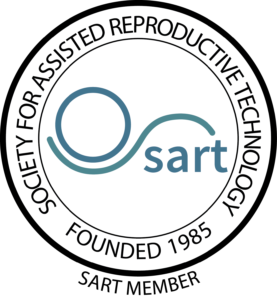Preimplantation Genetic Testing for Chromosome Rearrangement: PGT-SR
Sometimes, the causes of infertility are hidden in our DNA. People can live full, healthy lives with chromosome rearrangement, never knowing that they are at risk for infertility until they try for a baby. Thankfully, advanced genetic testing now allows us to identify men and women whose sperm or eggs may contain these chromosome errors, enabling them to have healthy children through IVF with PGT-SR, or preimplantation genetic testing for chromosomal structural rearrangement.
PGT-SR is a highly specific genetic test offered to eligible patients at our center for IVF in Nashville. This test is used to evaluate the chromosomes of embryos created through IVF, prior to transfer to the woman’s uterus. A sample of cells is removed from each embryo and sent to a specialized genetics laboratory for testing, while the embryos remain safely frozen at our IVF lab. By getting a look at the chromosomal makeup of each embryo, we can ensure that only embryos that are chromosomally normal are selected for use, increasing the chances of successful pregnancy.
What happens if an embryo has a chromosome rearrangement?
Embryos that have chromosome rearrangements often do not result in a successful pregnancy. This is because they do not contain the normal number of chromosomes, or because their chromosomes are not arranged normally. Some embryos may have one too many chromosomes, or one fewer than normal, while others may have specific genes affected that play important roles in fetal or childhood development.
Once the embryo’s cells begin to divide, a chromosome error is replicated over and over. This can cause an embryo to stop developing, resulting in a miscarriage. Or, it can result in the birth of a baby with a genetic condition or syndrome that may affect their quality of life.
If the rearrangement is “unbalanced,” it means that pieces of the chromosome are missing or duplicated. The effect on the embryo in these cases depends on which gene is affected.
If the chromosome rearrangement is “balanced,” the embryo can develop into a healthy child – but once that child reaches adulthood and hopes to become a parent, they may have issues with infertility or recurrent miscarriage. People with balanced chromosomal translocations are also at greater risk of having children with a genetic disorder, but they typically are not aware of their chromosomal abnormality until they try to conceive and seek out medical help.
Who needs PGT-SR?
If a couple is struggling with infertility, we typically recommend genetic carrier screening for both partners as part of a routine fertility workup. If a rearrangement or markers for another genetic condition are present in either partner, this genetic test can identify them.
People who have a balanced translocation are at greater risk of creating embryos with an unbalanced chromosome rearrangement. By choosing PGT-SR at our advanced center for IVF in Nashville, they can identify which embryos created through IVF are chromosomally normal, making it possible to transfer only those embryos that are most likely to develop into healthy children.
To learn more about PGT-SR and find out whether it might help you on your path to parenthood, contact us for a consultation to start fertility testing and learn more about IVF in Nashville.






